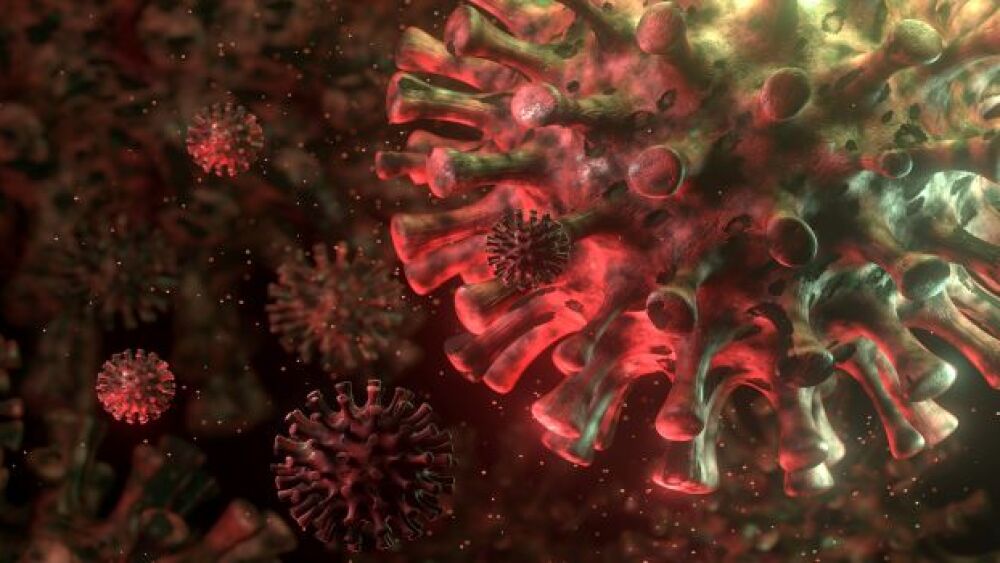As many children go back to school, new waves of COVID-19 cases continue to surge. More data keeps coming in on potential vaccine risks and how they measure up against the risk of the disease. Here’s a look.
As many children go back to school, new waves of COVID-19 cases continue to surge. More data keeps coming in on potential vaccine risks and how they measure up against the risk of the disease. Here’s a look.
Pfizer-BioNTech COVID-19 Vaccine Linked to 3-Fold Increased Risk of Myocarditis
A study out of Israel published in the New England Journal of Medicine found the Pfizer-BioNTech COVID-19 vaccine was associated with a threefold increased risk of myocarditis. However, the coronavirus infection was also associated with an even higher risk of myocarditis. The risk of myocarditis, an inflammation of the heart muscle, was one to five events per 100,000 persons.
The authors wrote, “We estimated that the BNT162b2 vaccine resulted in an increased incidence of a few adverse events over a 42-day follow-up period. Although most of these events were mild, some of them, such as myocarditis, could be potentially serious. However, our results indicate that SARS-CoV-2 infection is itself a very strong risk factor for myocarditis, and it also substantially increases the risk of multiple other serious adverse events” and, of course, death.
FDA Likely to Approve Booster Shot At Least 6 Months Instead of 8 Months After Last Shot
The Wall Street Journal reports that the U.S. Food and Drug Administration (FDA) is likely to approve booster shots for the existing three COVID-19 vaccines approved in the U.S. by mid-September. Those shots are Pfizer-BioNTech, Moderna and Johnson & Johnson. Previous reporting suggested the booster shots would be recommended eight months after the initial dosing was completed, but the source reports it will likely be approved for a six-month interval.
Afimune’s Epeleuton Shows Promise for Treating COVID-19
Dublin-based Afimmune announced findings in a hamster model of its Epeleuton in treating COVID-19. The drug has already demonstrated anti-inflammatory and positive metabolic effects in human Phase II studies. Epeleuton is a 15-hydroxy eicosapentaenoic acid ethyl ester. It is currently being studied in the TRIAGE Phase IIb study in Europe and the U.S. in patients with high triglycerides and type 2 diabetes. In the hamster studies for COVID-19, it demonstrated decreased viral loads and replication of the virus in throats, nasal turbinates and lungs. In the higher dose, there were no detectable viral titers in the throat as early as day 1 and on the peak of viral load on day 2. It also decreased the extent and severity of inflammatory and histopathological changes in the upper and lower respiratory tracts.
“As concerns about development of resistance to monoclonal antibodies grow, access to a variety of treatment approaches becomes more important,” said John Climax, chief executive officer of Afimmune. “These data suggest complete respiratory tract coverage and indicates the therapeutic potential of Epeleuton as a safe and effective oral outpatient treatment for COVID-19.”
U.S. Pediatric COVID-19 Cases Match Peak Winter Rate
Data from the American Academy of Pediatrics (AAP) cited 180,000 COVID-19 cases in U.S. children in the week ending on August 19. This is the same levels seen during the winter surge. This is more than one in five reported cases, 22.4%, being in children.
In their report, the AAP stated, “After declining in early summer, child cases have increased exponentially, with over a four-fold increase the past month, rising from about 38,000 cases the week ending July 22 to 180,000 the past week.”
To date, 4.59 million children have tested positive for COVID-19. However, hospitalization and death are low for this age group. Despite this increase, many parents are fighting masking mandates although some states with the highest surges, such as Florida, have banned school-based mask mandates. Florida is the center of a fourth wave of COVID-19, showing an almost 20% positive rate. Texas currently has more than 13,600 residents hospitalized with COVID-19 and is currently reporting ICU shortages.





